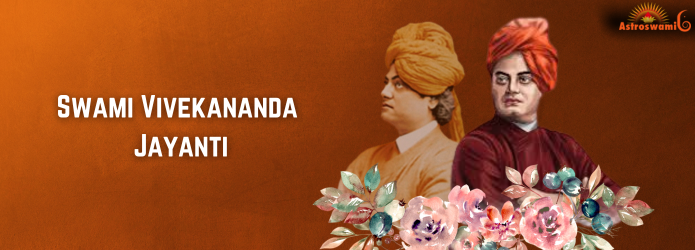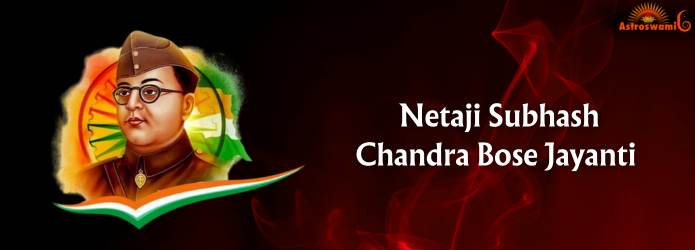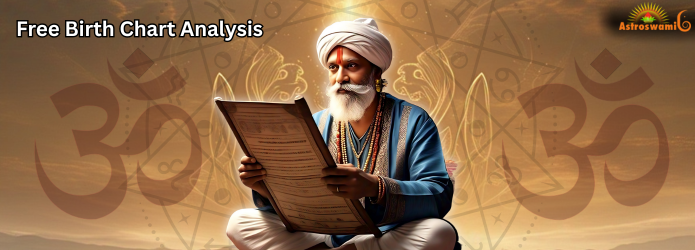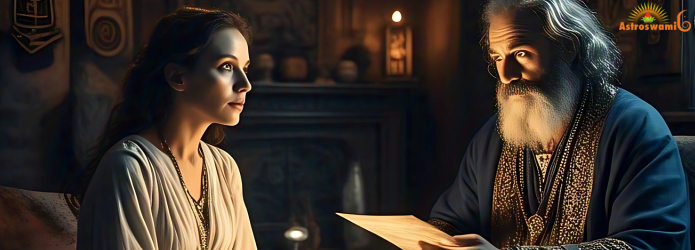
Swami Vivekananda Jayanti, observed on January 12th every year, commemorates the birth of one of India’s most revered spiritual leaders and philosophers, Swami Vivekananda. This day not only marks the birth of a remarkable individual but also celebrates his contributions to India and the world, especially in the realms of spirituality, social reform, and nation-building. A great advocate of Vedanta and Yoga, Vivekananda is remembered for his messages of universal brotherhood, self-realization, and national pride. His teachings continue to inspire millions across the globe, making his birthday a day of reflection and reverence.
Swami Vivekananda was born as Narendranath Datta on January 12, 1863, in Kolkata (then Calcutta), into a progressive Bengali family. His father, Vishwanath Datta, was a lawyer, and his mother, Bhuvaneshwari Devi, was deeply religious and pious. From an early age, Narendra showed an exceptional intellect and curiosity. His academic brilliance and intense spiritual quest led him to explore various fields of knowledge, including history, philosophy, literature, and spirituality.
Narendra's journey into spirituality began at the young age of 18 when he met his guru, Swami Ramakrishna Paramahamsa. Ramakrishna, a mystic and spiritual leader, had a profound influence on Narendra. Under the guidance of his guru, Narendra realized the oneness of all religions and the essence of divine realization. This spiritual awakening changed the course of his life and transformed him into Swami Vivekananda. He would later go on to spread the teachings of his guru and emphasize the importance of self-discipline, compassion, and the pursuit of truth.
One of the most significant moments in Swami Vivekananda’s life came in 1893 when he represented India at the World Parliament of Religions in Chicago. Vivekananda's speech at the Parliament is legendary for its depth, inclusivity, and powerful delivery. When he addressed the audience, he began with the words, "Sisters and brothers of America," which immediately won the hearts of the audience. His speech emphasized the importance of tolerance, universal acceptance, and the value of all religions.
In this speech, Vivekananda introduced the West to Hinduism in its true spiritual essence. He spoke about the concept of divinity within every human being, the interconnectedness of all religions, and the need for spiritual development over material pursuits. His words resonated deeply with the audience and helped bridge the gap between Eastern and Western philosophies, establishing him as a prominent figure in the global spiritual landscape.
Swami Vivekananda’s teachings were profound yet practical. He emphasized the importance of self-realization, the power of human potential, and the need for inner strength. Here are some key aspects of his philosophy:
1. Unity of All Religions
Vivekananda was a strong advocate of religious tolerance. He believed that all religions were different paths leading to the same divine truth. He often remarked that no religion was superior or inferior to another, as long as the teachings were based on love, compassion, and truth. His message was clear: "We are all different, but at the core, we are the same." This universal acceptance of all religions was central to his teachings.
2. Self-Reliance and Strength
One of Vivekananda’s most famous quotes is, “Arise, awake, and stop not until the goal is reached.” He strongly believed in the power of individual will and the importance of self-reliance. He encouraged people to tap into their inner strength and not be dependent on others for happiness or success. His message of self-empowerment was particularly significant in a colonial India, where many people had lost faith in their own abilities.
3. Service to Humanity
Vivekananda emphasized that spiritual growth and self-realization were not just about meditation or introspection but also about serving others. He believed that true spirituality should be reflected in one’s actions toward society, particularly toward the poor and marginalized. He said, "The best way to find yourself is to lose yourself in the service of others." His emphasis on selfless service has been a guiding principle for the Ramakrishna Mission, the organization he founded, which continues to work for the welfare of society.
4. The Power of Yoga
Vivekananda brought the ancient practice of Yoga to the forefront in the modern world. He viewed Yoga not only as physical postures but as a holistic approach to life that included meditation, ethical discipline, and devotion. His teachings on Raja Yoga (the Yoga of meditation) and Karma Yoga (the Yoga of selfless action) helped shape the global understanding of Yoga and its practical application in daily life.
5. Education and Nation-Building
Swami Vivekananda believed that the development of the nation was deeply connected to the upliftment of its people. He advocated for education that was rooted in Indian culture and values, emphasizing the importance of both intellectual and moral education. He also stressed the need for a balanced development of body, mind, and soul. His famous speech at the Madras (Chennai) session of the Indian National Congress in 1897 called for national regeneration through the empowerment of the youth.
Swami Vivekananda’s impact on India was profound. In a time when the country was under British colonial rule, Vivekananda’s teachings ignited a sense of pride and self-respect in the hearts of millions of Indians. His message was not just one of spirituality but also of social change, calling for the eradication of social evils such as untouchability, caste discrimination, and gender inequality.
His ideas on education, self-reliance, and national pride inspired leaders like Subhas Chandra Bose, Aurobindo Ghosh, and Mahatma Gandhi. The Ramakrishna Mission, founded by Vivekananda, has played an instrumental role in the social and educational upliftment of marginalized sections of Indian society. It continues to run numerous hospitals, schools, and humanitarian programs across India and abroad.
On the global stage, Vivekananda became a symbol of Eastern spirituality and wisdom. His speeches at the World Parliament of Religions, along with his writings and discourses, introduced the Western world to the profound philosophy of Vedanta, Buddhism, and Yoga. He is remembered as a bridge between the East and West, helping foster cross-cultural understanding and spiritual awakening.
On January 12th, Swami Vivekananda Jayanti is celebrated across India and around the world. Schools, colleges, and institutions hold special events to honor his life and teachings. Various religious and spiritual organizations organize lectures, discussions, and meditation sessions to reflect on his philosophical contributions.
The government of India has also designated this day as National Youth Day, in recognition of Vivekananda’s focus on the empowerment of youth. This is a reminder that his teachings continue to be relevant, especially in an age where young people face numerous challenges, both personally and socially. Swami Vivekananda’s belief in the potential of the youth remains an inspiring call to action for today’s generation.
Swami Vivekananda Jayanti is more than just the celebration of a great spiritual leader’s birth. It is a day to remember his contributions to the spiritual, intellectual, and social fabric of India and the world. Vivekananda's life was a beacon of hope and strength, teaching us to rise above our limitations and strive for higher ideals. His message of selfless service, universal tolerance, and unwavering faith in human potential continues to inspire generations of people worldwide. As we celebrate this day, we are reminded of the timeless relevance of his teachings, which encourage us to live a life of purpose, compassion, and inner strength.
Also Read :-Yearly Horoscope 2025 Astrology Predictions for 12 Zodiac Signs

Rasksha Bandhan festival is a celebration of love between sisters and brothers...

Netaji Subhash Chandra Bose Jayanti: Honoring the Legacy of a Revolutionary Leader...

The festival of Holi is nearing. This year, Holi is going to be celebrated on 13th and 14th March. Hindus celebrate this festival with great enthusias...

Christmas Day is also known as Christmas is a religious and cultural holiday which it is celebrated on the birthday of Jesus Christ for Isa Mashie. ...

This guide will help you understand what online kundli checking is, how it works, and why it’s a powerful tool for self-discovery and future planning....

Life is full of questions—some easy, some confusing, and some deeply personal. Whether you're unsure about your career, love life, or health, astrolog...

Best Marriage Muhurats in July, August, September, October and November 2025 are 2nd, 3rd, 6th, 8th, 12th, 13th, 16th, 21st, 22nd, 23rd, 25th and 3...